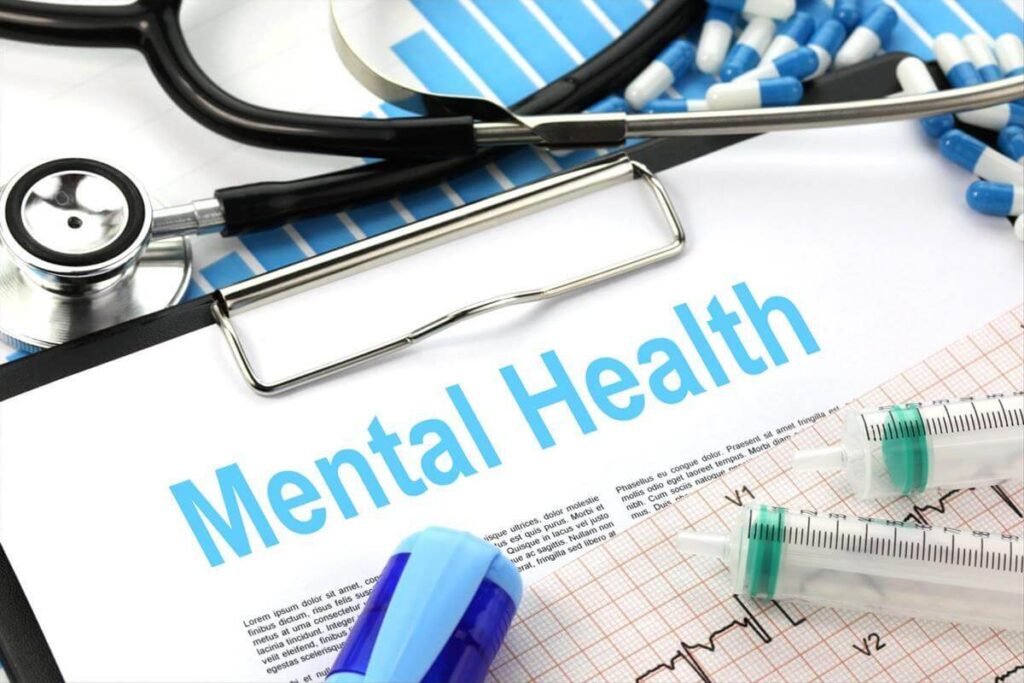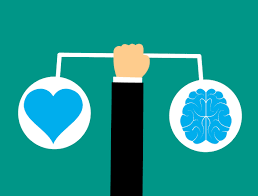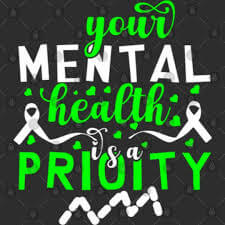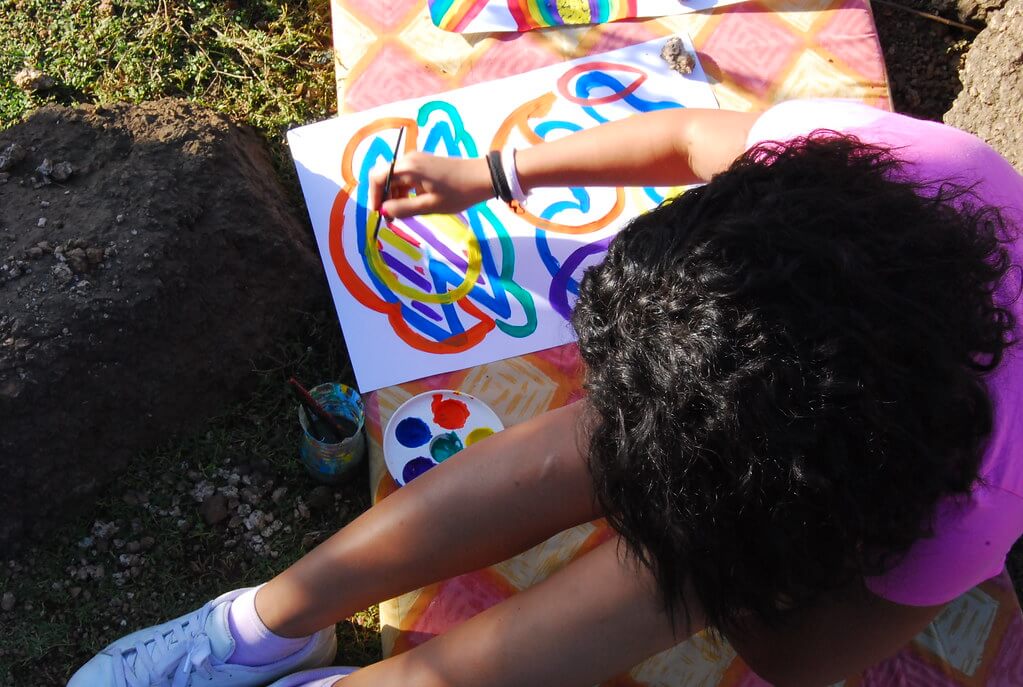Introduction

As per renowned Psychiatrist Dr. Shyam Bhat, there are about 200 million people in India who are suffering from mental health-related problems such as depression or anxiety.
Let’s face the reality: discussing mental health openly remains a challenge due to persistent stigmas and taboos in society. Despite progress in technology and medicine, there’s widespread denial regarding mental health conditions, treatments, and the need to prioritize them. Many affected individuals avoid seeking professional help due to social discrimination and lack of resources. Increasing mental health awareness is crucial to combat stigma and facilitate access to mental health therapy.
The primary goal of therapy is to promote emotional well-being and relieve symptoms of mental illness that include depression, anxiety disorders, bipolar disorder, PTSD, OCD, schizophrenia, eating disorders, ADHD, BPD, and substance use disorders. Therapy enhances coping skills and improves overall quality of life.
Mental Therapy sessions typically involve a collaborative and confidential relationship between the therapist and client, where clients are encouraged to share their emotions, thoughts, feelings, and behaviours in a supportive and safe environment. Therapists utilize various therapeutic techniques and modalities based on their training, theoretical orientation, and the client’s specific needs.
How do medical professionals diagnose mental health disorders?
Professionals such as psychiatrists, psychologists, clinical social workers, and even primary care doctors play a role in diagnosing mental health conditions. The process typically involves:
- Reviewing medical history, including any physical illnesses or mental health disorders in the individual or their family.
- Conducting a thorough physical examination to identify or rule out any physical conditions contributing to symptoms.
- Engaging in dialogue about the individual’s current concerns and reasons for seeking help.
- Exploring how recent life events or changes, such as trauma, relationship dynamics, work stress, or loss of a loved one, have impacted thoughts, emotions, and behaviours.
- Utilizing questionnaires or formal tests to gather feedback on the individual’s thoughts, emotions, and behaviours in various situations.
- Inquiring about past and current alcohol and drug use.
- Assessing any history of trauma, abuse, family crises, or significant life events.
- Exploring past or current thoughts regarding violence towards oneself or others.
- Incorporating input from individuals close to the patient through questionnaires or interviews, such as parents or spouses.
Types of Therapy for Mental Health
Here’s a look at some of the most common mental health therapies

Psychoanalysis and Psychodynamic Therapies
Psychoanalysis, pioneered by Sigmund Freud, is one of the oldest therapeutic approaches. It explores and interprets past events and underlying emotions that may shape present behaviours. While offering deep insight, psychoanalysis demands a substantial time commitment from patients.
Interpersonal Therapy
In interpersonal therapy, the focus extends beyond diagnosis to examine patients’ lives and experiences within their social contexts. This approach allows patients to explore their relational patterns and develop more robust support systems, which is particularly beneficial for mood disorders like depression.
Mentalization Therapy
Mentalization therapy targets individuals’ ability to differentiate their emotions from others, aiding in understanding and improving interpersonal dynamics, commonly employed with those diagnosed with borderline personality disorder.
Family Therapy
Family therapy addresses issues within familial systems, fostering communication, understanding, and conflict resolution. By enhancing intrafamilial relationships and support, this therapy promotes healthier interactions and coping mechanisms.
Group Therapy
Clinicians facilitate group therapy, which offers a supportive environment for individuals facing similar challenges. With emotional safety and shared experiences, group members receive mutual support, making it a cost-effective treatment option.
Play Therapy
Play therapy utilizes expressive play to help children communicate and develop interpersonal skills, which is particularly beneficial when verbal expression is limited.
EMDR
Eye Movement Desensitization and Reprocessing (EMDR) aids trauma recovery by reprocessing distressing memories, leading to decreased psychological distress and improved functioning.
Behavior Therapy
Behaviour therapy focuses on observable behaviours, guiding patients in evaluating and modifying maladaptive behaviours through reinforcement techniques.
Classical Conditioning
Classical conditioning techniques help patients form new associations with stimuli, aiding in the management of phobias, anxiety, and fear-based responses.
Operant Conditioning
Operant conditioning principles shape behaviour by reinforcing desired actions and extinguishing unwanted ones, which is particularly effective with children.
Desensitization
Desensitization techniques help individuals manage fear and anxiety by gradually exposing them to distressing stimuli.
Cognitive Behavioral Therapy (CBT)
CBT integrates cognitive and behavioural techniques to challenge and modify unhelpful thoughts, emotions, and behaviours, effectively treating various disorders, including anxiety and depression.
Humanistic Therapy
Humanistic therapy emphasizes personal growth, self-awareness, and accountability, empowering patients to realize their full potential.
Existential Therapy
Existential therapy helps patients find meaning and acceptance in their experiences, fostering personal growth and resilience.
Person-Centered Therapy
Person-centred therapy prioritizes patients’ autonomy and growth, providing a supportive environment for self-exploration and change.
Gestalt Therapy
Gestalt therapy focuses on present experiences, fostering awareness and responsibility for one’s thoughts, feelings, and behaviours.
Emotion-Focused Therapy (EFT)
EFT helps individuals flexibly identify and manage emotions, facilitating healthier interpersonal interactions and emotional expression.
Integrative or Holistic Therapy
Integrative therapy combines techniques from multiple approaches, tailoring treatment to meet patients’ individual needs comprehensively.
Animal-Assisted Therapy
Animal-assisted therapy utilizes the bond between animals and humans to promote emotional well-being and the development of social skills.
Creative and Art Therapy
Creative therapy, also known as expressive therapy or creative art therapy, is a form of psychotherapy that utilizes various creative modalities to help individuals express their emotions. It involves using music, dance, drama, poetry, and other types of creative expression as therapeutic tools.
Art therapy utilizes creative expression to facilitate self-discovery and healing. It is particularly helpful for individuals of all ages in exploring emotions and enhancing cognitive skills.
Also Read: Art Therapy Courses Surge in India’s Mental Health scene
What are the Benefits of Mental Health Therapy

In the current fast-paced digital world, prioritizing mental health is more crucial than ever. Thankfully, therapy has emerged as a potent tool for promoting emotional well-being and facilitating personal growth. Mental health therapy profoundly impacts wellness, offering individuals a non-judgemental environment to address their emotional and psychological needs. Whether through in-person sessions or online platforms, therapy offers a transformative journey toward overall improved mental well-being.
Discovering Self-Awareness
Therapy provides an invaluable opportunity for self-reflection and self-awareness. Through insightful discussions with a trained therapist, individuals gain a deep understanding of their emotions, thoughts, and behaviours. By exploring their inner world, psychotherapy enables individuals to recognize triggers, patterns and underlying mental health conditions like PTSD, bipolar disorder, or chronic depression. This newfound self-awareness catalyzes personal growth and self-improvement, empowering individuals to make positive improvements and develop healthier coping mechanisms.
Unveiling Emotional Insights
Emotions can be complex and overwhelming, but therapy provides a safe and non-judgmental space to explore and understand them. Skilled therapists guide individuals in identifying and expressing their feelings, fostering clarity and insight. By delving into the roots of emotions, talk therapy helps resolve inner conflicts, develop healthier emotional regulation skills, and navigate life’s challenges effectively.
Developing Coping Strategies
Life’s ups and downs can leave us overwhelmed and ill-equipped to handle stress. Mental health therapy enables clients with effective coping techniques specific to their needs. Therapists teach relaxation techniques, problem-solving skills, and healthy communication strategies, empowering individuals to manage stress, navigate conflicts, and cope with difficult emotions. By developing these coping skills, therapy promotes mental resilience, enabling individuals to navigate life’s challenges and mental illness better.
Challenging Negative Thoughts and Beliefs
Negative thought patterns and self-limiting beliefs wield significant influence over mental well-being. The goal of therapy is to confront and reshape these detrimental cognitions, promoting a more constructive and adaptive mindset. Utilizing approaches such as psychodynamic psychotherapy or cognitive-behavioral therapy (CBT), therapists assist individuals in recognizing distorted thinking patterns and examining alternative viewpoints. By actively challenging persistent negative thoughts, therapy nurtures self-compassion, enhances self-esteem, and cultivates a more hopeful perspective on life.
Healing Trauma and Pain
For those who have experienced trauma or painful life events, therapy offers transformative healing. Experienced therapists employ evidence-based treatment approaches such as trauma-focused therapy. By addressing emotional wounds associated with trauma, therapy facilitates emotional recovery, allowing individuals to regain control and move forward in their lives.
Strengthening Relationships
Our relationships significantly impact mental health, and therapy provides a space to improve interpersonal dynamics. Whether through couples therapy or family therapy, individuals find a neutral ground for open communication, conflict resolution, and fostering healthier relationships. By enhancing promoting understanding, communication skills and addressing underlying issues, therapy strengthens bonds and promotes overall mental well-being within relationships.
Therapy provides a profound journey towards healing, self-discovery, and personal development. By fostering emotional insight, self-awareness, effective coping mechanisms, and the confrontation of negative thought patterns, therapy equips individuals with the tools to live richer, more meaningful lives and navigate mental health challenges successfully. Moreover, it serves as a crucial mechanism for addressing trauma and enhancing interpersonal bonds, allowing individuals to regain agency over their emotional health and cultivate more nourishing relationships with those around them.
Why Mental Health Awareness is Important
Mental health awareness is vital to combating stigma, enhancing access to resources, facilitating early intervention, and elevating overall well-being. By promoting understanding and support for mental health issues, individuals can seek help without fear of discrimination, leading to improved mental health.

5 Ways to Raise Mental Health Awareness
While it’s crucial to recognize the various methods available to raise awareness about mental health, what truly matters is taking concrete steps towards addressing this issue.
Open Dialogue
The stigma around mental health often leads individuals to hide their struggles due to fear of judgment or ridicule. We can create an environment where people feel comfortable sharing their experiences by fostering open discussions about mental health issues. This openness helps break down barriers and encourages individuals to seek treatment without fear of stigma.
Educate and Recognize Symptoms
Mental illness can be challenging to identify, as individuals may appear fine on the outside while suffering internally. Educating ourselves about the early signs and symptoms of mental health disorders enables us to recognize when our loved ones may be struggling. This awareness allows us to offer support and encourage them to seek professional help.
Promote Mental Health Check-ups
Many people are unaware that mental health screenings, similar to physical health check-ups, are available. By promoting the availability of these screenings and sharing resources, we empower individuals to take charge of their mental well-being. Encouraging others to undergo screenings and openly discussing our own experiences can reduce the stigma surrounding mental health.
Active Involvement in Awareness Campaigns
Engagement in online and offline mental health awareness campaigns plays a significant role in raising awareness. Leveraging social media platforms to create awareness about mental health events and initiatives can reach a broad audience and encourage participation. Additionally, advocating for policy changes that improve access to mental health care services can positively impact communities.
Holistic Support
Promoting holistic approaches to mental health addresses the symptoms and emphasizes overall well-being. Encouraging self-care practices, such as exercise and healthy lifestyle habits, helps individuals develop resilience and coping strategies. Organizing events and activities focused on mental health awareness, such as hikes or fitness challenges, fosters community and encourages positive behaviour change.
By implementing these strategies, we can work towards creating a society that prioritizes mental health and supports individuals in their journey towards well-being.
How Art therapy is Transforming Mental Health

Art therapy demonstrates considerable potential across diverse therapeutic environments. It serves as a valuable tool in supporting individuals contending with anxiety, depression, post-traumatic stress disorder (PTSD), and assorted mental health obstacles. Furthermore, it offers tangible benefits to patients managing chronic illnesses by aiding in pain management, bolstering emotional resilience, and enriching overall quality of life.
Art therapy employs various techniques, including collage, coloring, doodling, drawing, painting, photography, mandala art, sculpting, origami paper crafts, and working with clay, to facilitate expression and promote healing in individuals.
These diverse methods cater to different preferences and therapeutic needs, offering avenues for self-discovery and emotional processing.
Also Read: Explore Origami Paper Craft Ideas in Art Therapy Course
